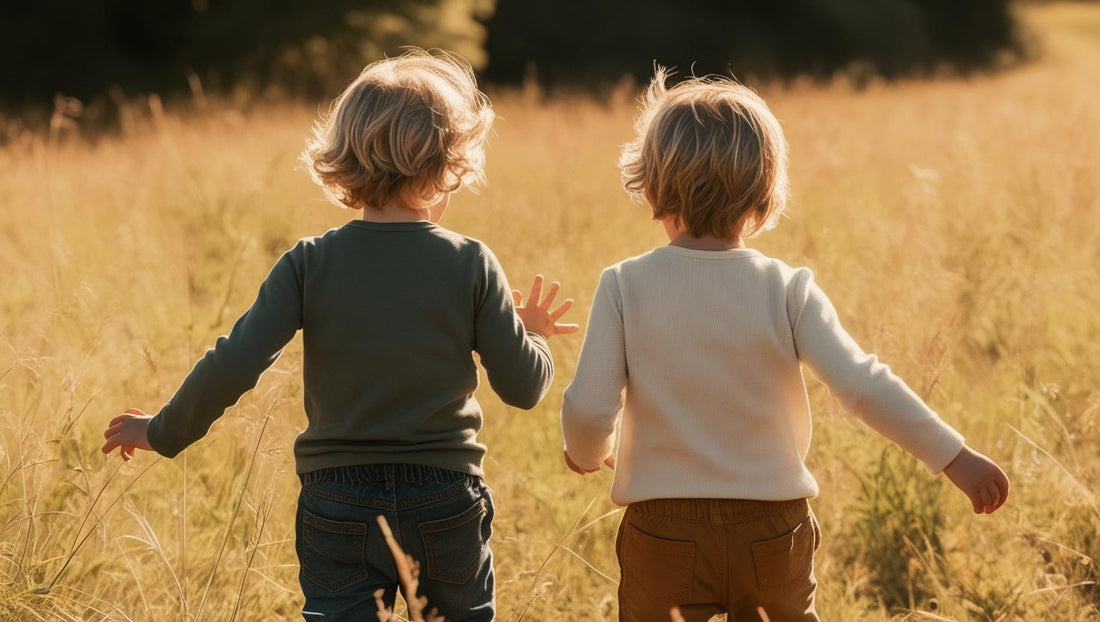
The Power of Play: Why Kids Need to Disconnect and Get Outside
Share
The Power of Play: Why Kids Need to Disconnect and Get Outside
In today’s digital world, screens have become a big part of children’s daily lives. While technology has many benefits, research shows that excessive screen time can negatively impact kids’ physical, social, and emotional development. Encouraging children to step away from devices, engage in face-to-face social interactions, and play outdoors is essential for their overall well-being.
Why Reducing Screen Time is Crucial
The average child spends several hours a day in front of screens, whether it's watching TV, playing video games, or using a tablet. Studies have linked excessive screen time to:
-
Delayed social skills – Research from the American Academy of Pediatrics suggests that too much screen time reduces opportunities for social interactions, leading to difficulties in communication and empathy development.
-
Increased anxiety and attention issues – A study published in JAMA Pediatrics found that excessive screen use is associated with higher rates of anxiety, depression, and attention disorders in children.
-
Disrupted sleep patterns – The blue light from screens can interfere with melatonin production, making it harder for children to fall and stay asleep (National Sleep Foundation, 2021).
The Benefits of Outdoor Play and Face-to-Face Socialization
Playing outside and interacting with peers in person offer significant benefits, including:
✅ Boosting Physical Health – Running, climbing, and jumping improve motor skills, coordination, and overall fitness. According to the World Health Organization, children should have at least an hour of active play daily to support healthy growth.
✅ Enhancing Creativity & Imagination – Unstructured outdoor play allows children to use their imagination, which is essential for cognitive development. Research from the American Journal of Play highlights that pretend play encourages problem-solving and innovation.
✅ Building Social & Emotional Skills – Face-to-face interactions teach kids cooperation, teamwork, and conflict resolution. A study by the National Institute for Play found that play-based socialization fosters emotional resilience and empathy.
✅ Reducing Stress & Anxiety – Nature has a calming effect on the brain. A study in Frontiers in Psychology found that children who spend time in green spaces experience lower stress levels and improved mood.
How to Encourage More Play and Less Screen Time
-
Set Screen Time Limits – Create device-free zones, such as at the dinner table and before bedtime.
-
Plan Outdoor Adventures – Whether it’s a trip to the park, a nature walk, or playing in the backyard, make outdoor time a daily habit.
-
Encourage Role-Playing Games – Activities like dress-up, pretend play, and storytelling help children develop creativity and communication skills.
-
Lead by Example – Children mimic adult behaviors. When parents reduce their screen time, kids are more likely to follow suit.
At Mademoiselle Sunshine, We Prioritize Play!
At Mademoiselle Sunshine, we believe that childhood should be filled with hands-on experiences, creativity, and real-world fun. Our subscription boxes are designed to inspire imaginative play, encourage social interaction, and provide screen-free activities that spark joy and curiosity. From DIY crafts to engaging accessories, each box is thoughtfully curated to help kids disconnect from screens and reconnect with creativity, adventure, and quality time with loved ones.
Let’s bring back the magic of play—one box at a time! 🌞✨
Sources:
-
American Academy of Pediatrics (AAP)
-
JAMA Pediatrics
-
National Sleep Foundation
-
World Health Organization (WHO)
-
American Journal of Play
-
National Institute for Play
-
Frontiers in Psychology





